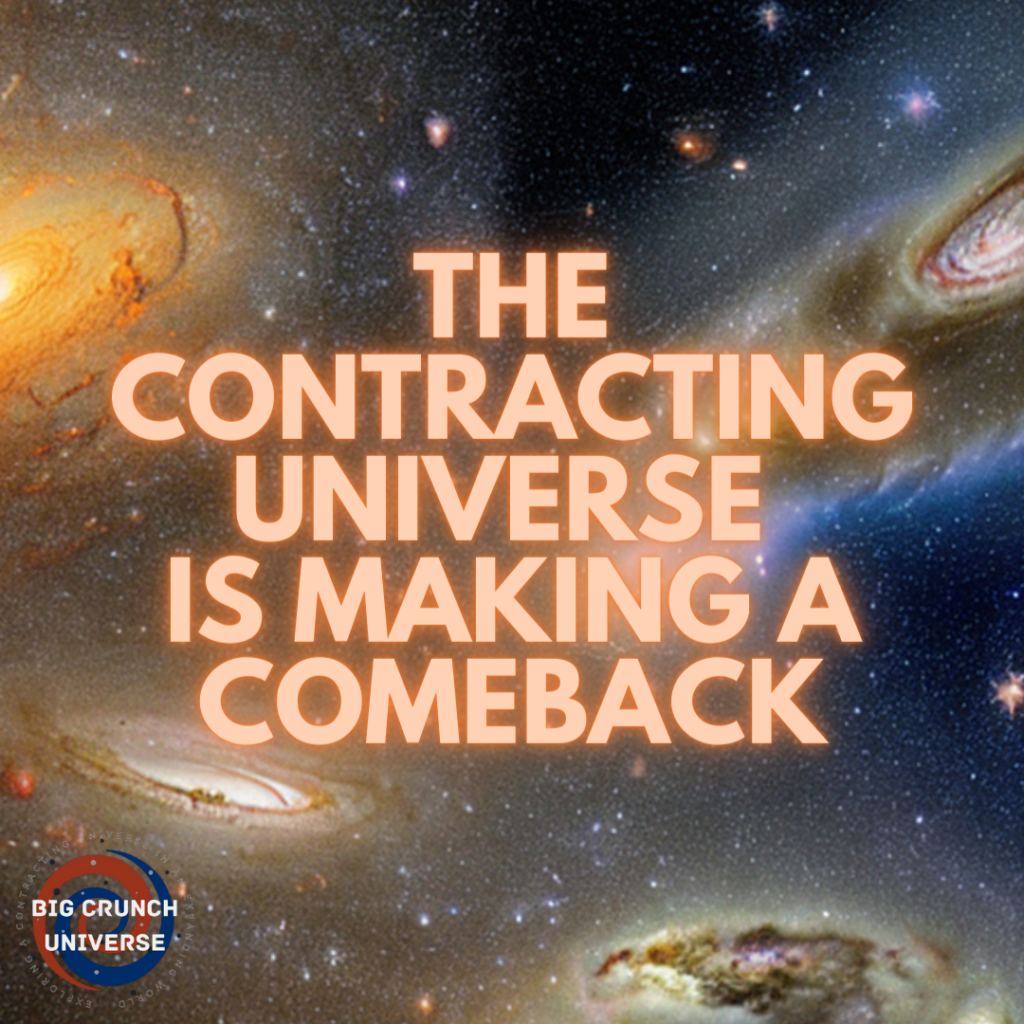Is the Theory of a Contracting Universe Making a Comeback?

Over the years, scientists have proposed various cosmological theories to understand the origins and fate of our universe. One such theory, the idea of a contracting universe, gained prominence but eventually fell out of favor in the scientific community. However, recent discoveries and advancements in our understanding of the cosmos have sparked renewed interest in revisiting this intriguing concept. In this blog post, we will explore why the theory of a contracting universe was abandoned and delve into compelling reasons why it is now being reconsidered.
The Abandonment:
In the mid-20th century, the notion of a contracting universe, also known as the “Big Crunch,” gained traction. According to this theory, the expansion of the universe, set in motion by the Big Bang, would eventually reverse, leading to a contraction. It proposed a cyclical model of the universe, where successive cycles of expansion and contraction occurred indefinitely.
However, in the late 1990s, groundbreaking observations startled the scientific community. Astronomers discovered that the universe’s expansion is accelerating, rather than slowing down as expected. This discovery was awarded the Nobel Prize in Physics in 2011 and led to the formulation of the concept of dark energy. This mysterious force, driving the accelerated expansion, dealt a heavy blow to the theory of a contracting universe.
As the evidence for dark energy mounted, scientists began to favor an alternative model known as the “Big Freeze” or the “Heat Death.” In this scenario, the universe’s expansion continues indefinitely, eventually leading to a state of maximum entropy, where all energy is evenly distributed and no new stars can form. The idea of a contracting universe faded into obscurity.
The Reconsideration:
Despite the dominance of the Big Freeze theory, recent developments in our understanding of the cosmos have reignited interest in revisiting the idea of a contracting universe. Let’s explore some compelling reasons why scientists are giving this theory a second look:
1. Modified Understanding of Dark Energy:
While dark energy remains enigmatic, scientists have not given up on the possibility that our understanding of it might evolve. Current models assume a constant or slowly evolving dark energy density, leading to eternal expansion. However, new theories suggest that dark energy could change over time, possibly even becoming negative and driving a contraction. Such a change in our understanding could bring the contracting universe theory back into play.
2. Quantum Physics and the Bounce Theory:
The field of quantum physics offers intriguing possibilities for reconciling the Big Crunch theory with our current understanding. The concept of a quantum bounce suggests that when the universe reaches its smallest possible size, the quantum realm takes over, causing it to bounce back and initiate a new cycle of expansion. This concept provides a fascinating alternative to the traditional Big Bang and could resurrect the notion of a contracting universe.
3. Cosmological Cycles and Multi-Dimensional Space:
Advancements in theoretical physics have introduced the possibility of multi-dimensional space and cyclical models of the universe. String theory and brane cosmology propose that our three-dimensional universe is a “brane” floating within a higher-dimensional space. In this framework, cycles of expansion and contraction become plausible, reigniting the idea of a contracting universe as one phase in an eternal cosmic dance.
Conclusion: The theory of a contracting universe, once abandoned due to the discovery of dark energy and the accelerating expansion, is now being reconsidered with fresh perspectives. Scientists are exploring alternative explanations for dark energy, investigating quantum bounce scenarios, and delving into the complexities of multi-dimensional space. As our knowledge expands, it is crucial to remain open to revisiting and reevaluating previously discarded theories. The future of cosmology holds exciting possibilities, and only time will tell whether the theory of a contracting universe will make a remarkable comeback, challenging our current understanding of the cosmos.